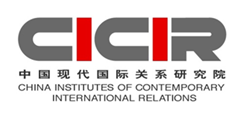Sino-European Expert Working Group on the Application of International Law in Cyberspace
Sino-European Expert Working Group on the Application of International Law in Cyberspace
The China Institutes of Contemporary International Relations (CICIR), the Xiamen University (XMU), EU Cyber Direct – EU Cyber Diplomacy Initiative, and the Geneva Centre for Security Policy (GCSP) jointly convened the second meeting of the Sino-European Expert Working Group on the Application of International Law in Cyberspace (EWG-IL) in Geneva and online from 22 to 23 June 2022.
The working group provides a platform for exchange to examine the application of international law in cyberspace and promote exchanges amongst Chinese and European legal experts on their legal positioning across diverse cyber scenarios. The EWG-IL is also uniquely designed to examine specific legal questions in-between meetings of the more widely focussed EU-China Cyber Task Force (track 1) and the Sino-European Cyber Dialogue (track 1.5) meetings, thereby advancing the discussion in all forums.
The second meeting hosted by the GCSP on 22-23 June brought together over 20 legal experts to discuss topics under three broad, standing themes:
- Overarching legal framework applicable to cyberspace;
- Rules and principles of international law in cyberspace;
- Case studies on the application of international law to a cyber operation.
The meeting provided an opportunity for an expert discussion regarding (1) perspectives on cyber sovereignty and peaceful settlement of dispute, (2) respective interpretations of legal issues presented by fictional cases related to due diligence and the law of armed conflict, and (3) the identification of areas of consensus as well as issues for further study and discussion.
On the European side the expert working group is kindly sponsored by the Swiss Federal Department of Foreign Affairs, the European Union, and the Dutch Ministry of Foreign Affairs.




